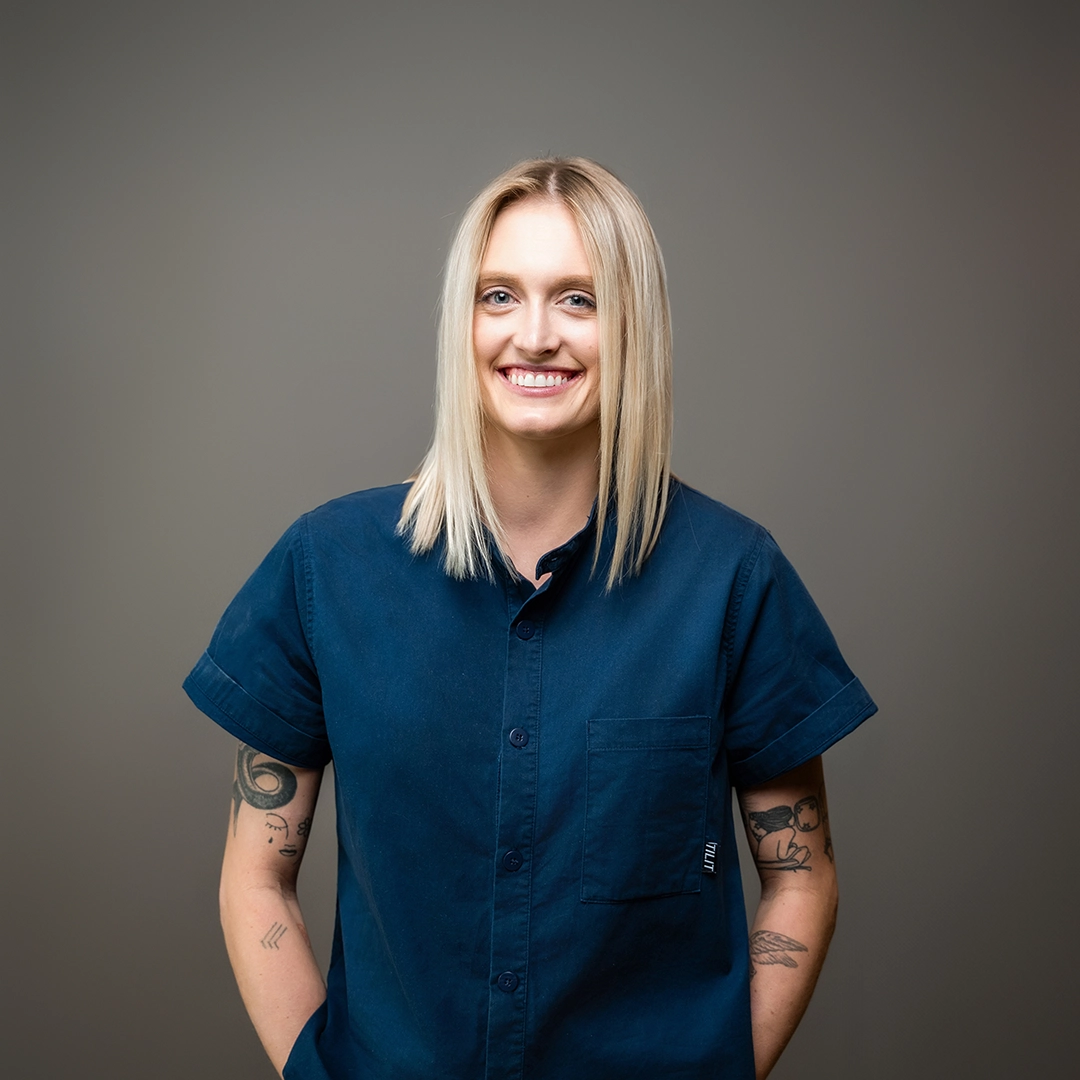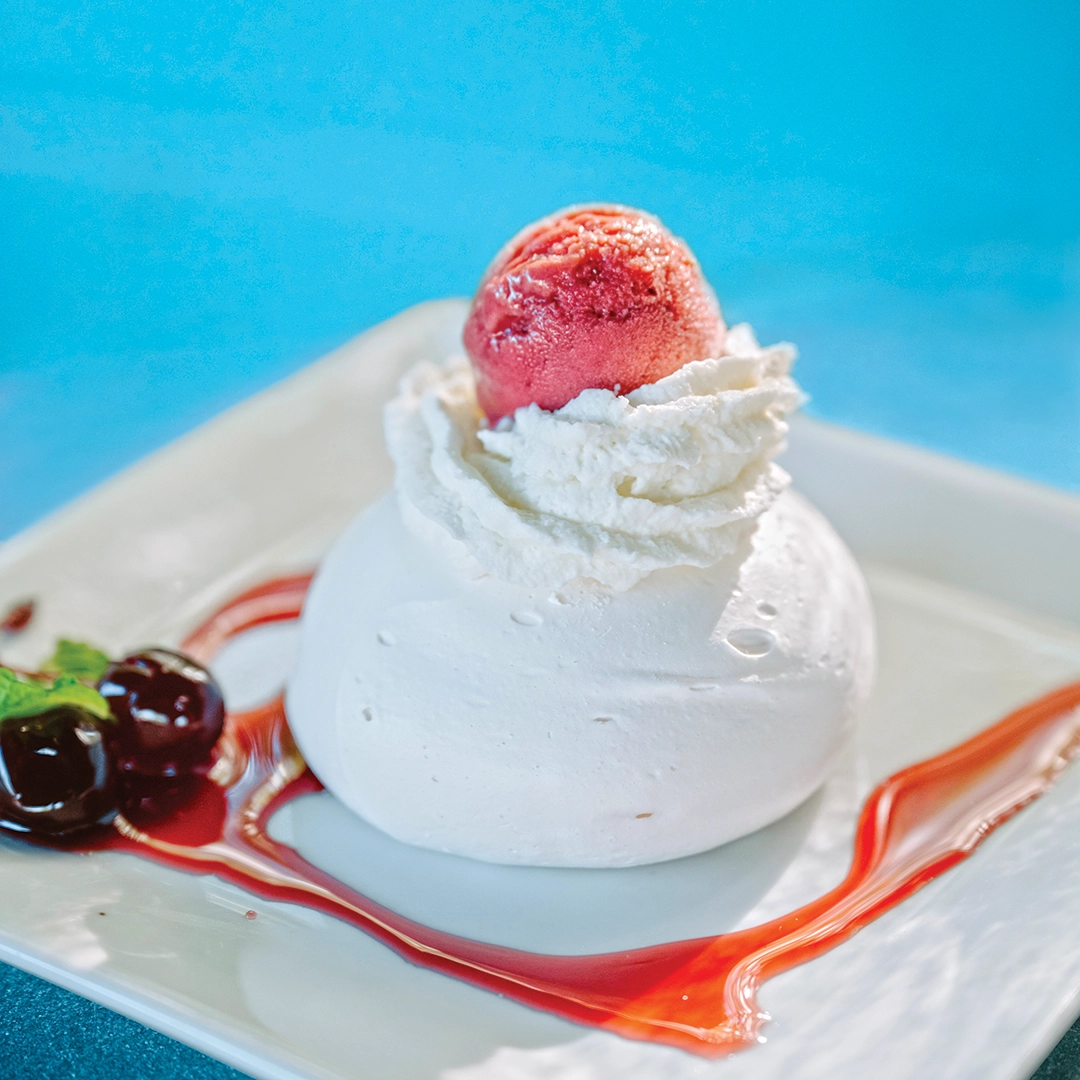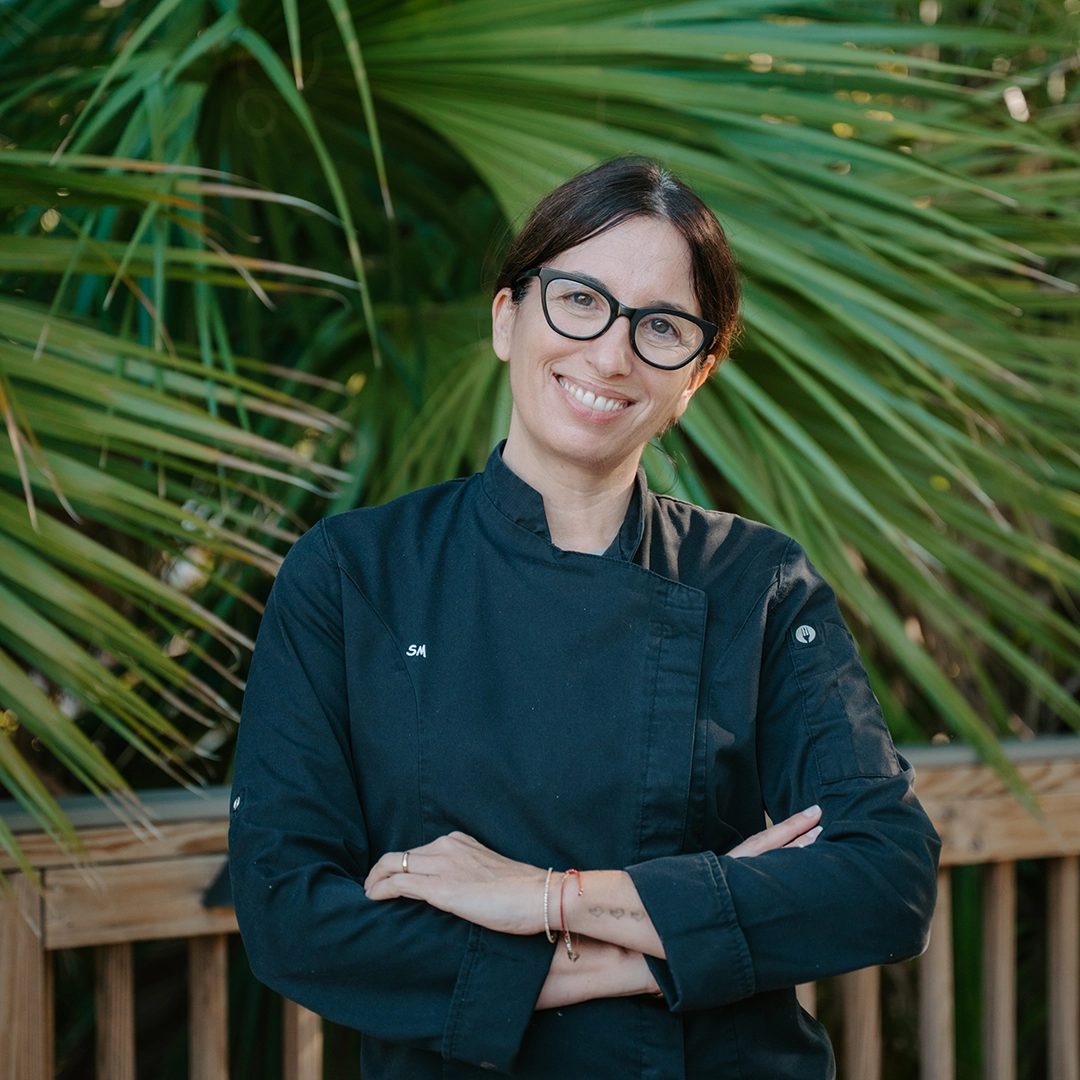by | March 31, 2025
Chef Pushkar Marathe Brings His Dreams to Life in Palm Beach
Chef Pushkar Marathe of Stage came from India dreaming of starting his own restaurant. Now he’ll have four.
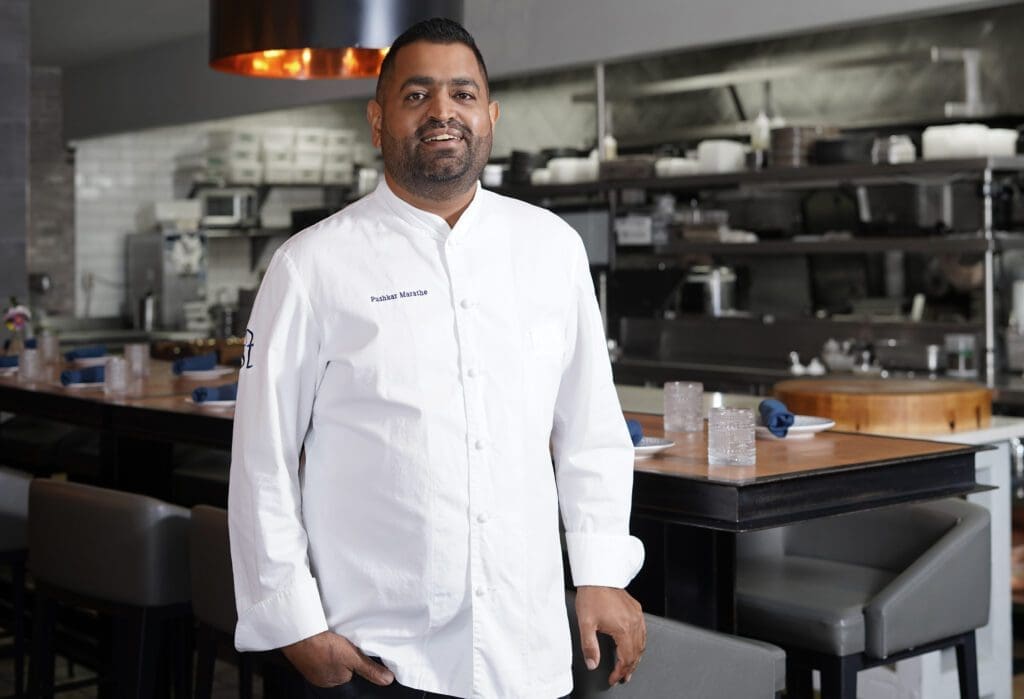
In Pushkar Marathe’s latest dream, he is living on a farm with his wife and son. There, with a backdrop of wide-open acres and unspoiled weather, the James Beard Award semifinalist is growing fresh fruits and vegetables, and raising chickens whose eggs help feed the family and their friends. Cossetted by thickets of bamboo trees in this dream, Marathe imagines hosting dinners by invitation three times a week during the five months out of the year that the farm would be open.
Today, walking through the lettuce-lined rows on Kai-Kai Farm in rural Indiantown, just west of Jupiter, his fingers outstretched to touch the leaves, Marathe is as close as he has ever been to realizing that dream. At the vegetable and fruit farm Kai-Kai, he is happy, looking over the vegetation that will eventually make its way into his three restaurants.
“This is where it all starts,” he says.
On this quiet Monday morning, Marathe leans over to touch the broccolini, sweet and earthy, some of the best that the chef has ever tasted. He’s joined on this walk by Kai-Kai co-owner Diane Cordeau, who he considers as much a friend as an associate.
“Are you going to send me more broccolini this time?” the chef teases.
“I’ll see what I can do,” replies Cordeau, who runs the 40-acre farm and entertainment venue with her husband, Carl.
Marathe, 40, has long come into his own as a chef. Born in India, where he cooked with his parents and grandmother, he has become one of South Florida’s premier ambassadors to a different category of cuisine that is both avant-garde and familial, complex yet unpretentious. Take his first restaurant Stage (pronounced: staahj) in Palm Beach Gardens, opened in 2020. Informed by his his years living in countries like Switzerland, Qatar, the Cayman Islands and the United States, and befriending expats from places like Albania and Portugal, Stage features an international menu. Here, the classic French dish chicken liver pate is on the same menu as the Middle East-born hummus, Southern shrimp and grits, Italian cavatelli and Spanish patatas bravas with Indian naan.
Make Pushkar Marathe’s Shrimp Moilee at Home
The U.S. audience has taken note, too. In 2023, he was a James Beard Award Best Chef: South semifinalist. Along with partner Andy Dugard, Marathe has also opened the nearby Ela Curry & Cocktails and Mango Mercado. And the two plan to open a second Stage in Boca Raton in early 2025. For those who are counting, that makes four restaurants in five years.
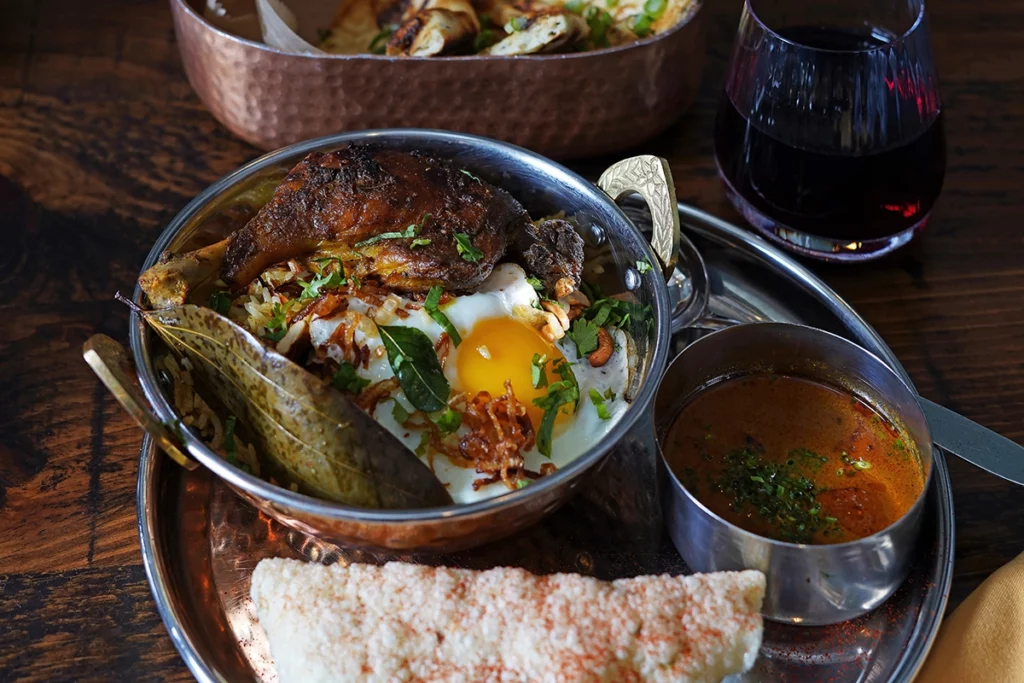
If Marathe’s past dreams are indicative of reality, then his farm dream might very well come true. After all, it was Marathe, a boy from India, who wished nearly 20 years ago to open a restaurant in the United States.
As a child, Marathe and his family moved around India because his father was a mechanic in the Indian Air Force. Living throughout the subcontinent exposed Marathe to all types of regional cuisine, each one more different from the other. Then, at 20 years old, after studying hospitality, Marathe decided he wanted to be a chef. He dove right in, booking a one-way flight to Zurich, Switzerland, to study the
culinary craft.
Why Switzerland? “Because it was landlocked,” Marathe explains. After two decades of living in India, he was attracted to the idea of being surrounded by multiple cultures on all sides of the European country. It was Marathe’s chance to go outside his comfort zone and into others’, like with food. On the day he arrived in Zurich, Marathe found a platter of smoked salmon waiting for him in his room. He had never had it before, so the hopeful chef tried it—and hated it.
“But I saw that people like it, so it must be good, and I vowed that I will learn to like it, and I actually do,” Marathe says. “Now, I can make amazing smoked salmon.”
After training in Switzerland, Marathe came to Fort Lauderdale in 2008 to cook under the renowned Chef Dean Max at his seafood-centric restaurant 3030 Ocean. While working under Max, Maranthe worked with a lineup of soon-to-be all-star chefs, including eventual “Top Chef” winner Jeremy Ford, James Beard Foundation-recognized Paula DaSilva and Michelin-awarded chef Niven Patel, each one pushing each other in their respective careers.
I knew that we’d never fail because of how many blessings we have.
—Chef Pushkar Marathe
It was his first time working in the United States, where Marathe found that “everybody was welcoming, and I thought it would be great to build a business here.” In fact, in the back of the 3030 Ocean kitchen, Marathe confided in Ford about his plans to own his own place one day.
In 2020, Marathe had his chance. After working once again alongside Patel at the
latter’s acclaimed Ghee Indian Kitchen in Miami and then Meat Market Palm Beach, he opened Stage on Feb. 14, 2020. The name refers to a culinary stage, an internship in which a cook works briefly in another chef’s kitchen to learn new techniques and skills, and Marathe’s restaurant was a culmination of his journey as a chef and his dream.
The only problem? Opening night was the same night as his dear friend’s wedding, a 300-person affair that Marathe promised he would cater. So there he was on Valentine’s Day, trying to figure out how to be in two of the most important places in his life at once.
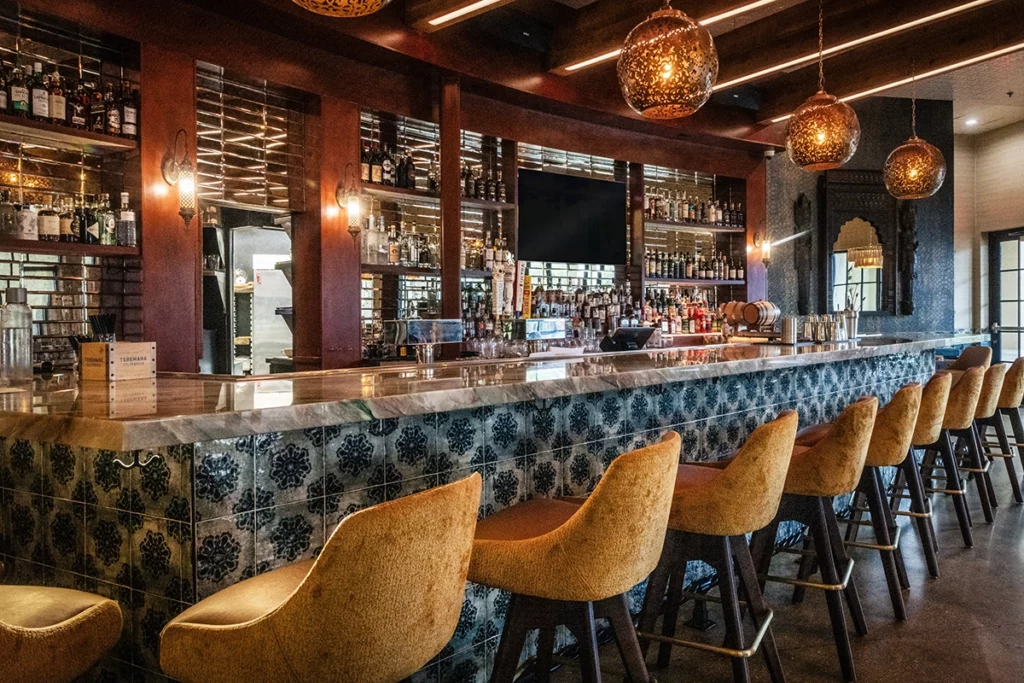
Looking back today, nearly five years removed from that evening, while sitting under Kai-Kai’s 3,100-square-foot covered pole barn, Marathe has only good memories. In true chef fashion, he says that despite the round-the-clock preparations, that night “was so much fun” because “we made all the food.” The wedding featured a five-course sit-down dinner with passed hors d’oeuvres while Stage’s opening showed off his intercontinental chops at the same time.
Where Stage spotlights a global menu with hints of Marathe’s heritage, his second restaurant, Ela Curry & Cocktails, is full-on Indian cuisine. Within this indoor-outdoor restaurant, Marathe shows that Indian food is not a monolith—like with his pork belly dohkhleh, an onion and meat salad typically found in eastern India, and his Niman Ranch lamb shank nihari, a popular stew with origins in the northern part of the country.
How to Make Chef Pushkar Marathe’s Pachadi Salad Recipe
Sanskrit for “cardamom,” one of Marathe’s favorite spices, Ela is an ode to his homeland. Naan is slow-proofed for 48-72 hours. Chapati (or roti) is cooked on an open fire. In short, “this is just like home,” Marathe says.
The chef recognizes that in a region like Palm Beach County, where the census doesn’t even discern between Eastern Asian people and members of the South Asian community, he’s offering something unique to the mostly Western audience. While he says it’s fun to introduce flavors to this demographic, when asked how it feels to serve Indian food to Indian people, Marathe smiles. “It’s lovely,” he says. “I love it when they tell me that it reminds them of their grandma’s food. I love to serve food to a family of five whose grandmother is from India. That is the best part for me.”
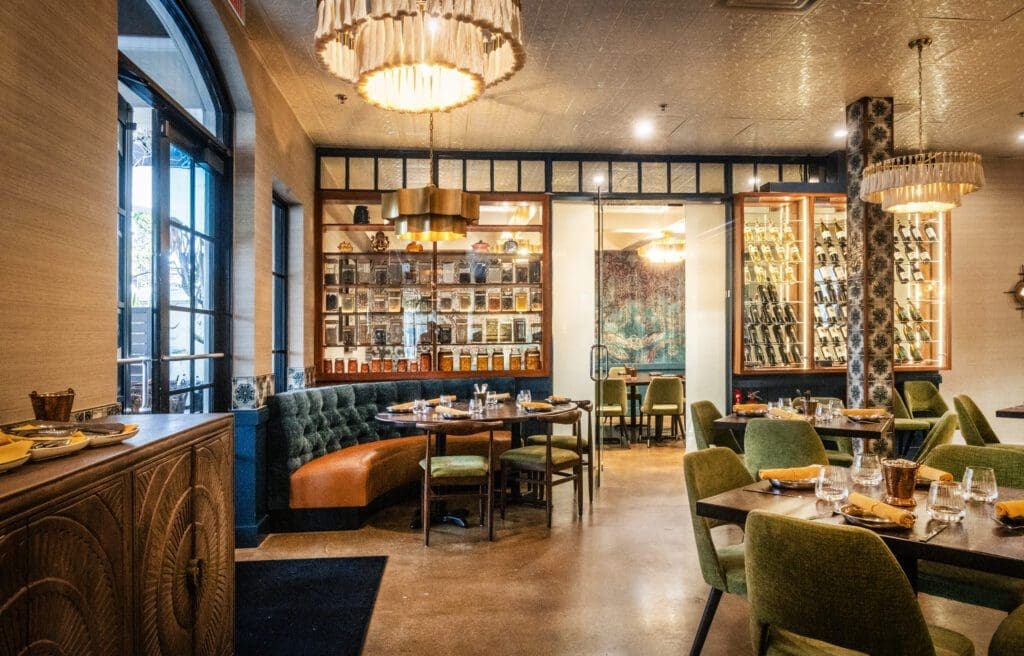
This spring, a second Stage will open about 40 miles south in Boca Raton. Marathe and partner Dugard say the time is right for them to open a Marathe-helmed restaurant outside of Palm Beach Gardens, noting that in an area lined with steakhouses and Italian restaurants, Stage will stand out.
If the opening of Stage’s second location is anything like Ela’s opening in 2022, Marathe will be surrounded by his most trusted team: his parents. They flew in from India to celebrate their son and his opening in 2022, assisting him whenever they could, like when his mother stayed up to make dough for the chapati. During Ela’s first few months, Marathe even cooked beside his mom in Ela’s kitchen. Her effervescence filled the room. Regular diners would even request to sit in front of Mama Marathe’s station in the open-concept kitchen.
When a dishwasher failed to show up for work one day, Papa Marathe volunteered to do the washing himself. Then, his father gave his son a piece of crucial advice after seeing the excess amount of rice left on plates. “He told me we were serving too much rice,” Marathe says. “People weren’t eating all of it, so why not reduce the amount? That was actually a really good observation that we listened to.”
Speaking about this rare time with his parents, Marathe tears up. Wiping his eyes, he says, “I knew that we’d never fail because of how many blessings we have.”
If you ask Marathe if this was the best time of his career, he might agree. Or, he’ll say it was a dream come true.
For more Floridian chefs, click here.
About the Author
Nila is an award-winning journalist and editor whose work has appeared in Condé Nast Traveler, Garden & Gun and The New York Times, to name a few. Simon has written for Flamingo since 2017, with profiles on tennis star Sloane Stephens, the unique South Florida community of Stiltsville and the state’s best wellness resorts.

